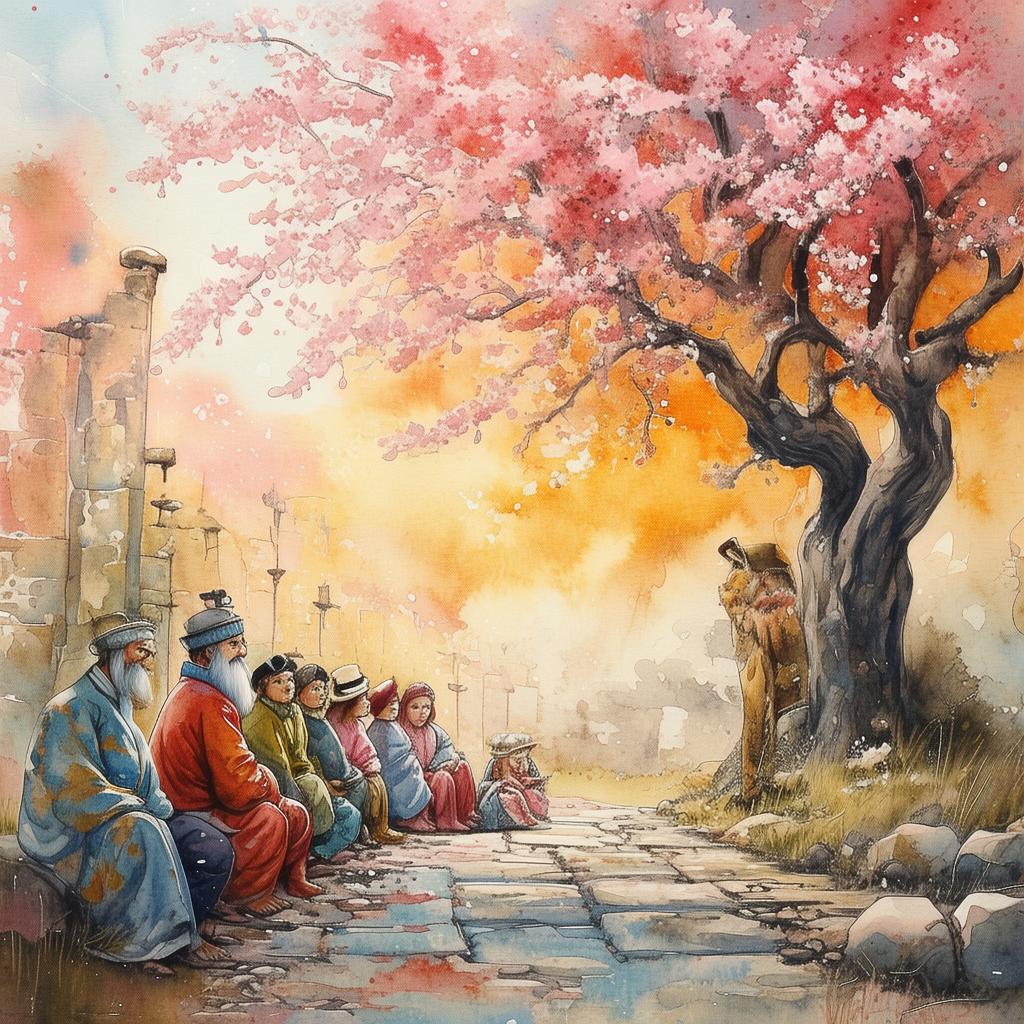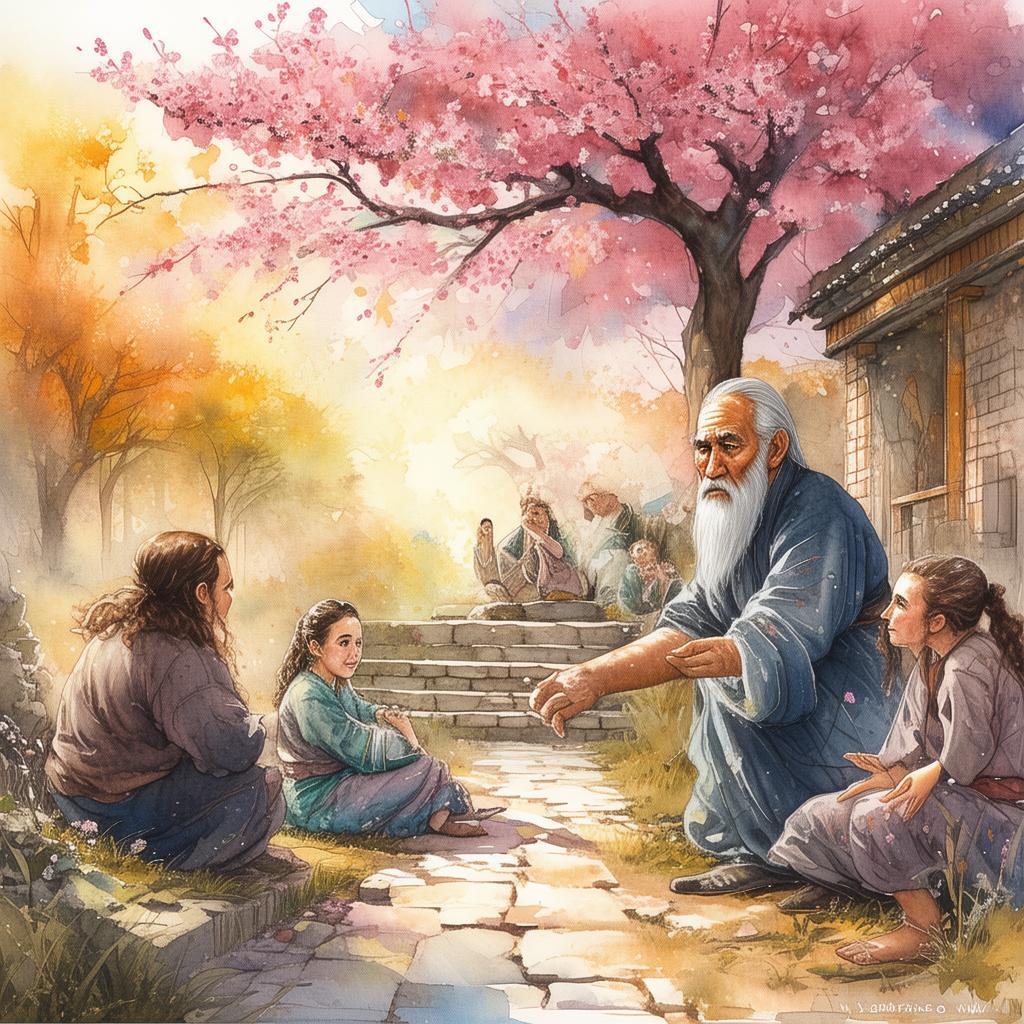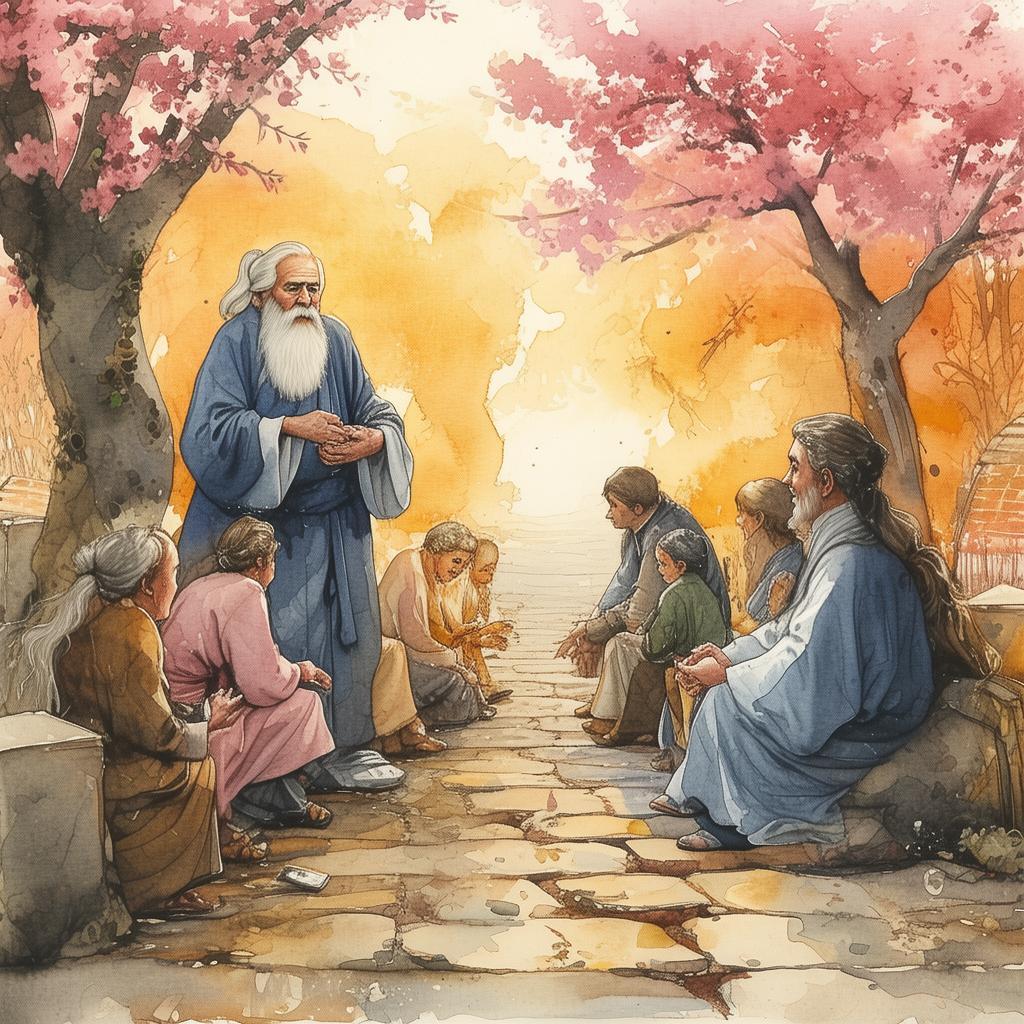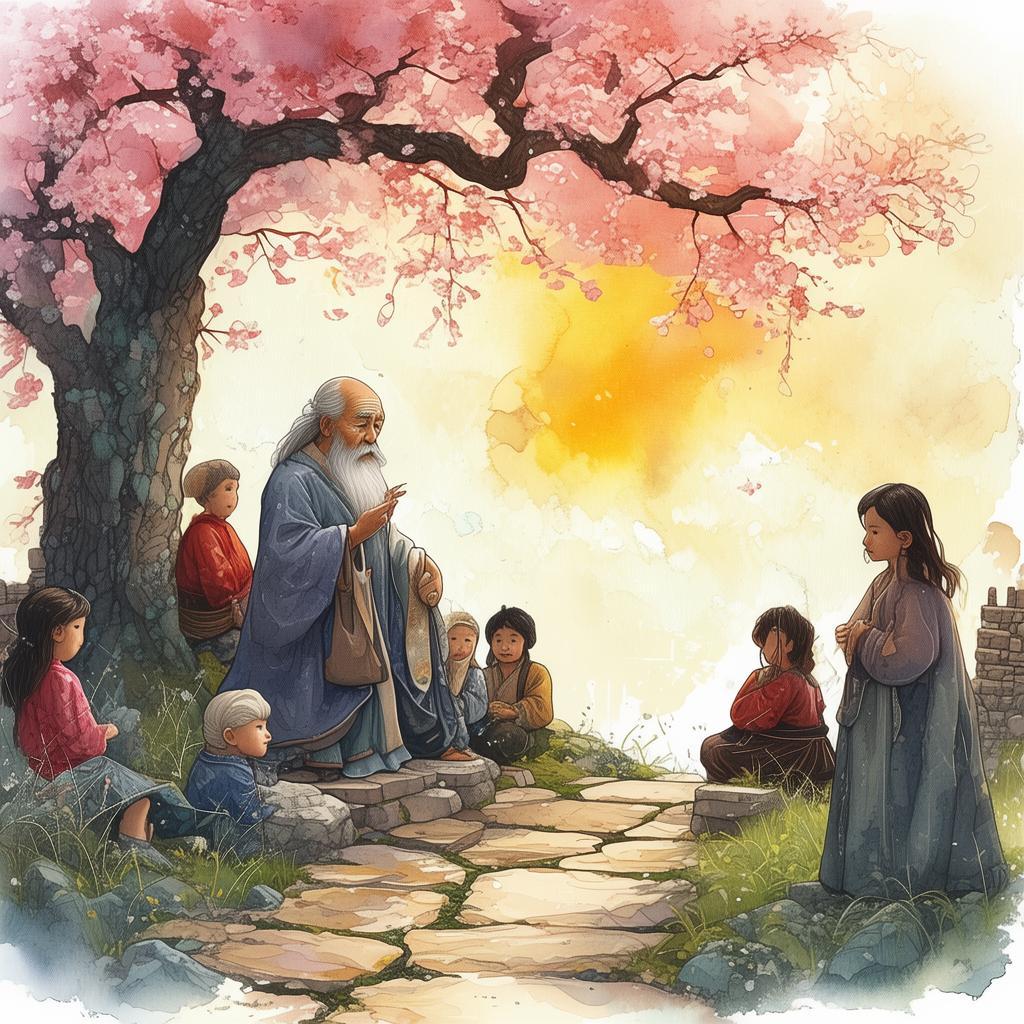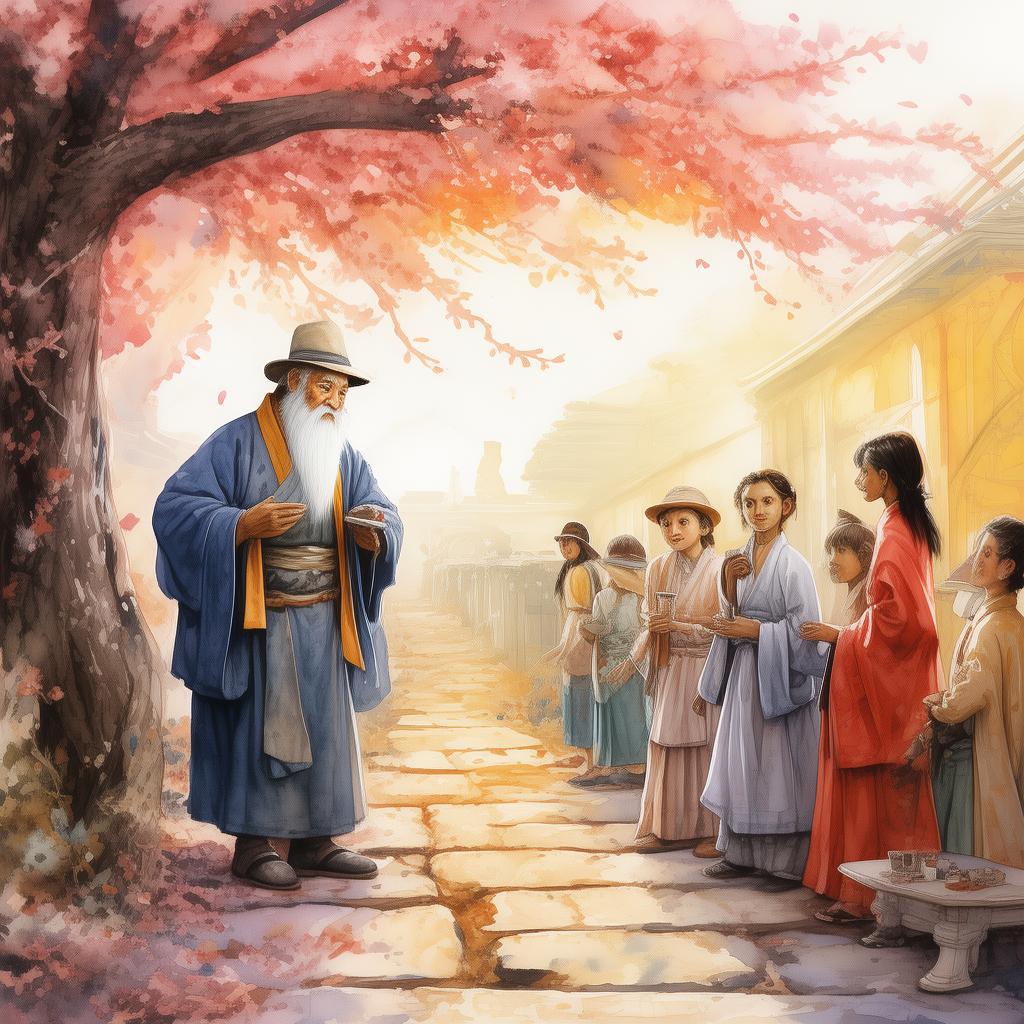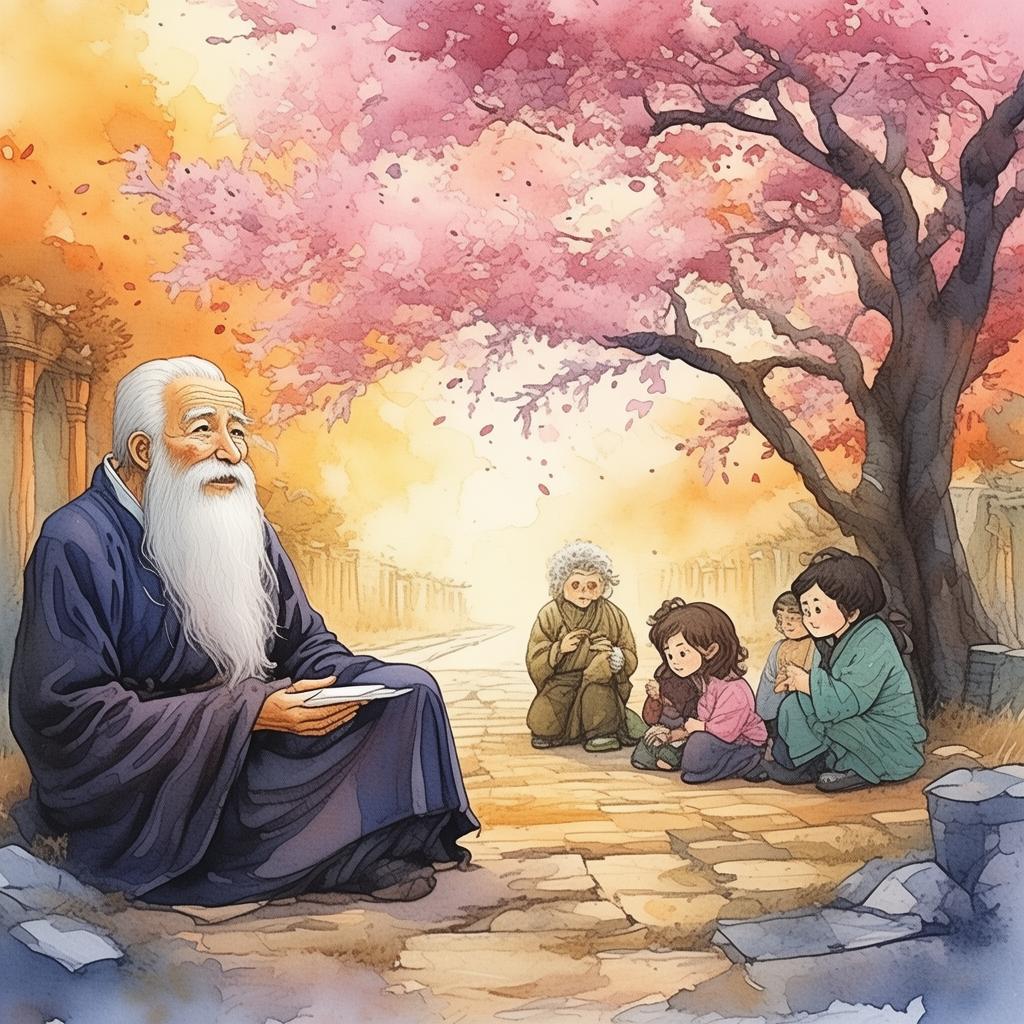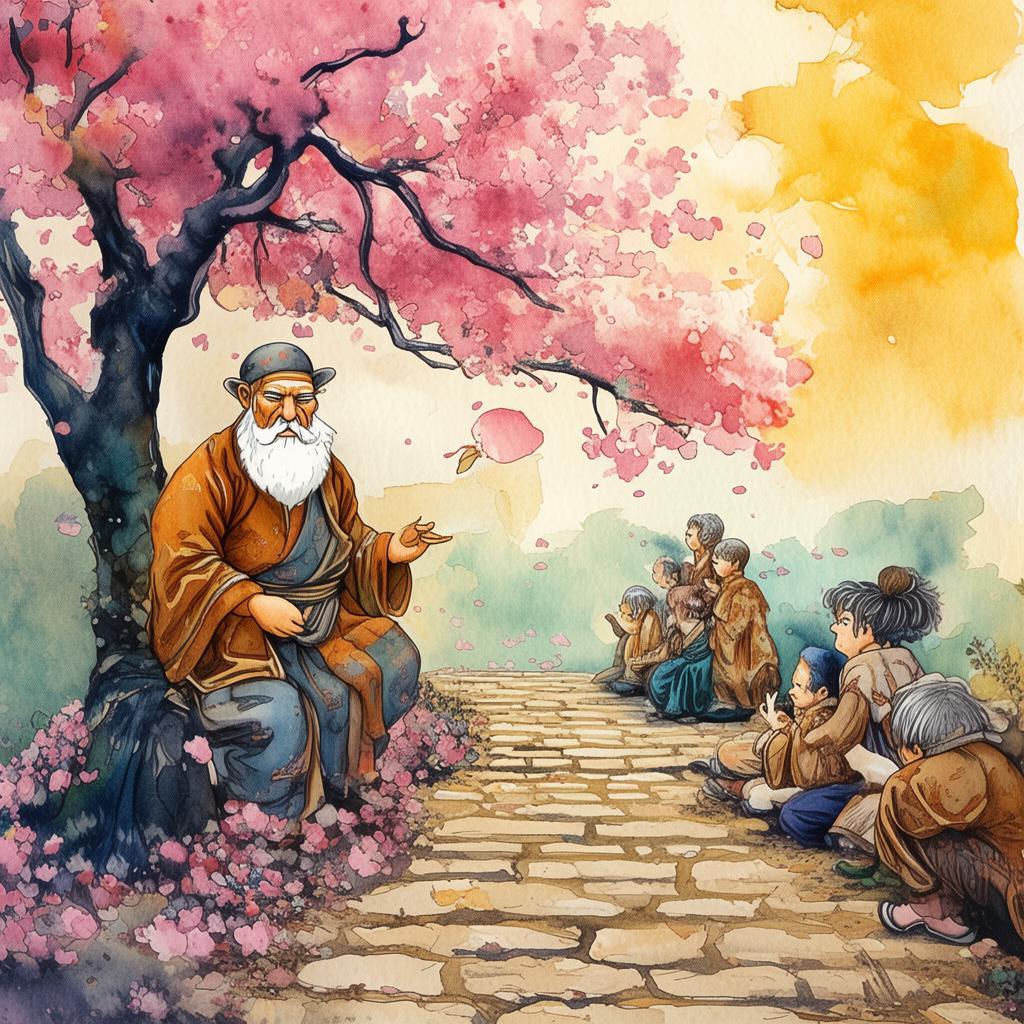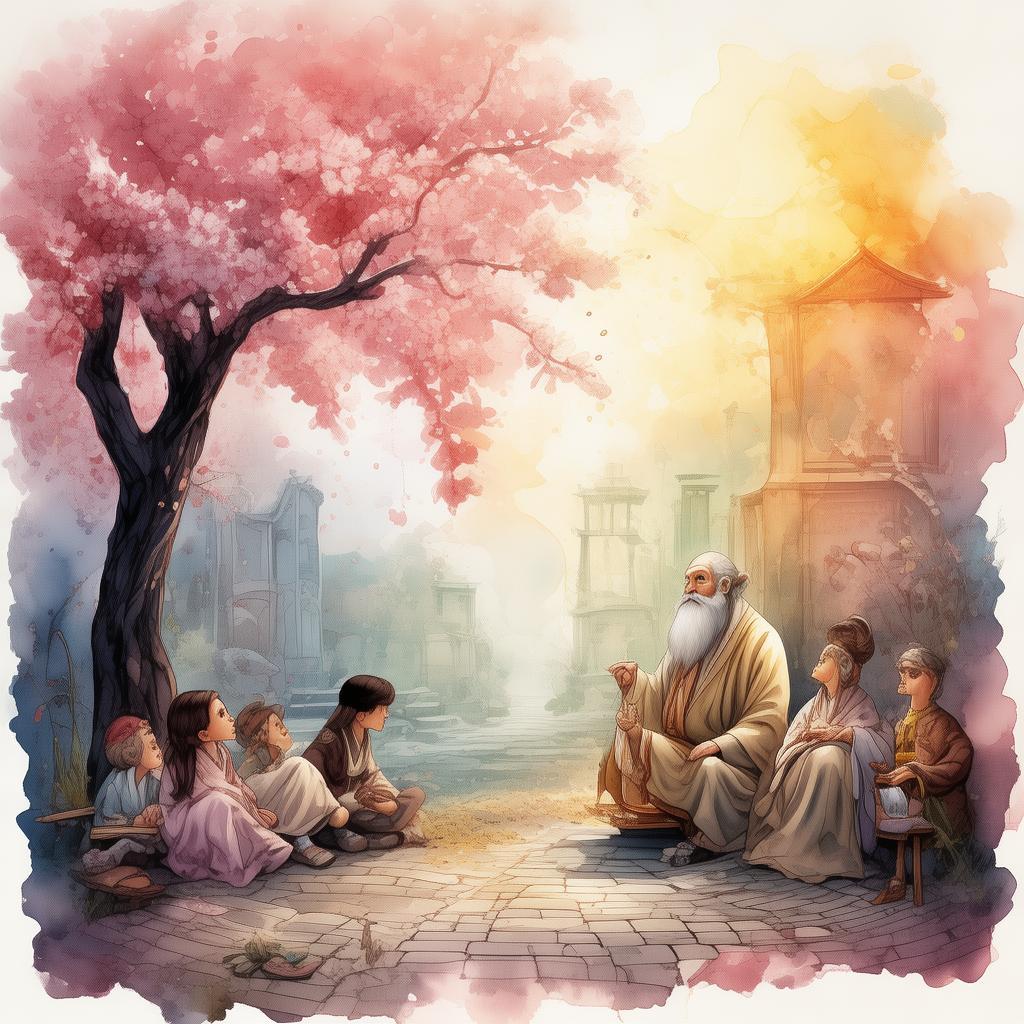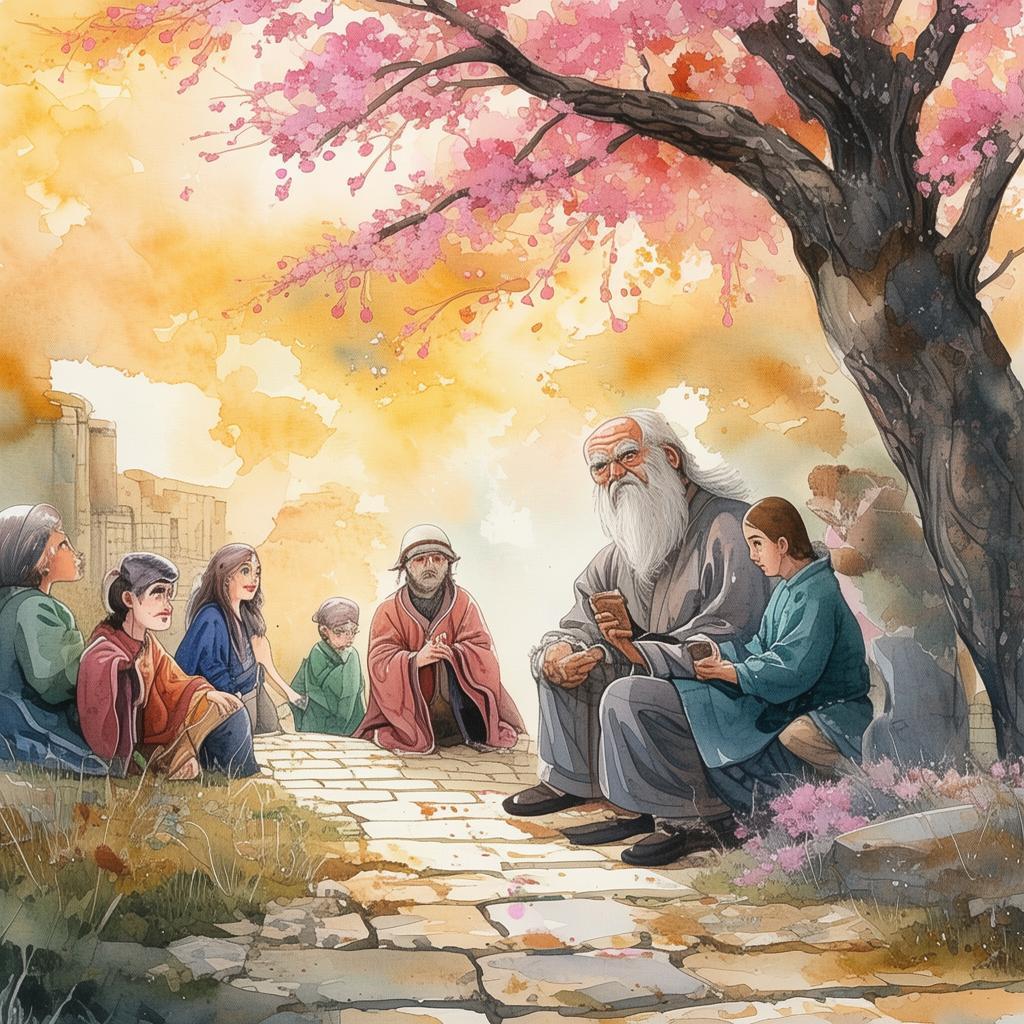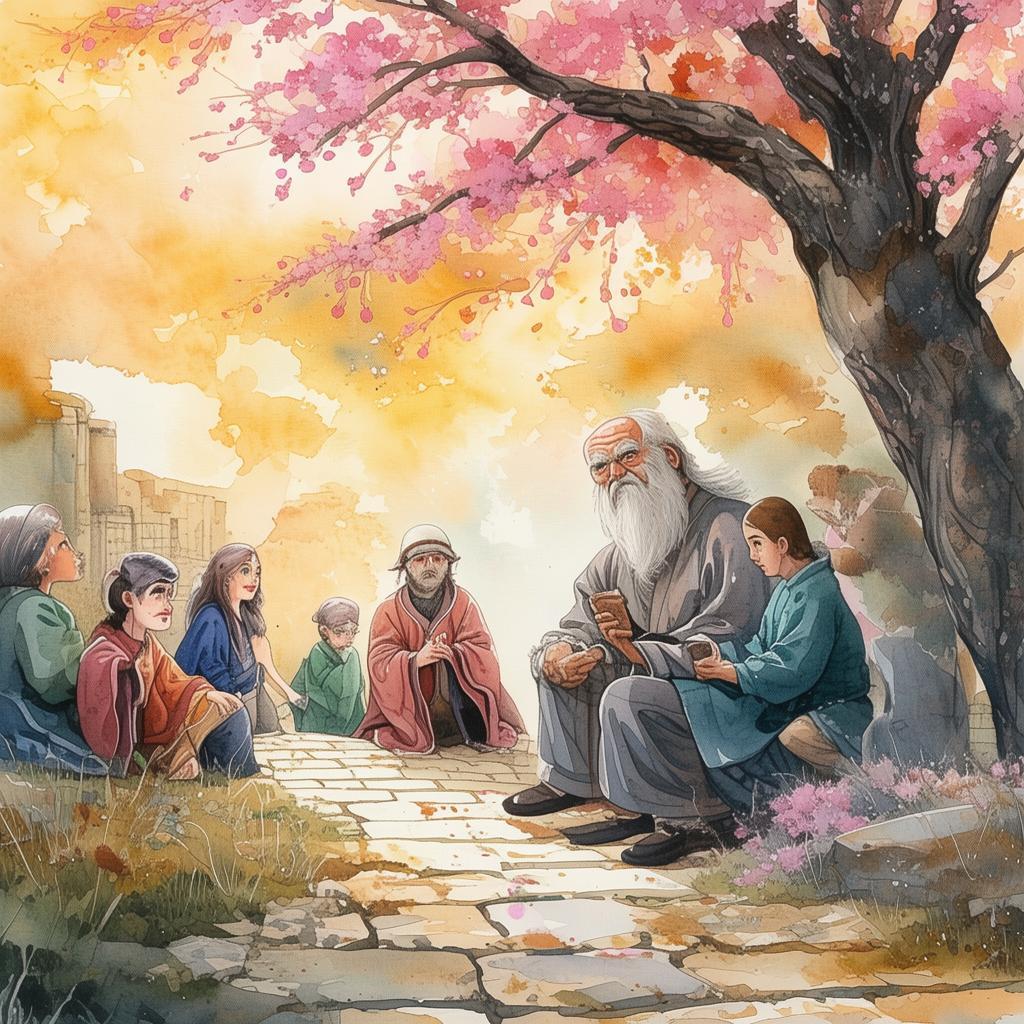The Echoes of the Violin: A Symphony of Forgiveness
In the heart of a small, war-torn village, the violin played a melody that was both haunting and soothing. It was the instrument of a young man named Chen, who had returned from the war with more wounds than visible scars. His story was one of loss, pain, and the relentless pursuit of healing—a story that would echo through the halls of forgiveness and the symphony of life.
Chen had left his village as a vibrant young man, filled with dreams and aspirations. But the war had claimed his innocence, leaving him with memories that could never be forgotten. The bullets had pierced his heart not once, but repeatedly, and though the physical wounds had healed, the emotional ones remained deep and unyielding.
His village, once a haven of peace, was now a landscape of desolation. The sound of laughter and children's voices had been replaced by the constant wail of sorrow and the somber toll of the bell. Chen found solace in the only thing that remained constant in this chaos—the violin, which had been his mother's prized possession and his first companion in music.
The violin was an old, worn-out instrument, its wood aged and its strings slightly out of tune. But to Chen, it was the vessel of his soul, the one thing that allowed him to express the pain he felt in ways words could never capture. He played it every day, letting the music flow from his heart and soul, hoping to find some semblance of peace.
One day, as Chen was playing in the town square, a woman approached him. Her eyes were filled with tears, and she handed him a letter. "My son," she said, her voice trembling, "I have been searching for you for years. The war took him from me, but I believe you are alive. I have been listening to your music, and I knew I had to find you."
Chen's heart raced. The woman spoke of his younger brother, a soldier who had disappeared during the war. He had never stopped believing that his brother was alive, and the thought that he might be near filled him with a mix of hope and dread.
The letter was his brother's, written in the final days of the war. It spoke of a promise to return, a promise that Chen had held onto for years. He realized that the violin had become a beacon, a connection to his brother, and a symbol of the unyielding hope that had kept him alive through the darkest times.
As Chen read the letter, he understood that his journey of healing was not just about himself; it was about forgiving his brother, forgiving the war, and forgiving himself for the pain he had caused. He knew that forgiveness was not an easy path, but it was the only way to find peace.
Chen and the woman traveled together, seeking clues about his brother's whereabouts. They faced numerous obstacles, including the fear of the unknown and the pain of the past. But through it all, Chen played his violin, his music a testament to the resilience of the human spirit.
One evening, as they sat by a river, Chen played a melody that was both joyous and somber. The woman listened, tears streaming down her face, as the music carried them away to a place where the pain of the war no longer existed.
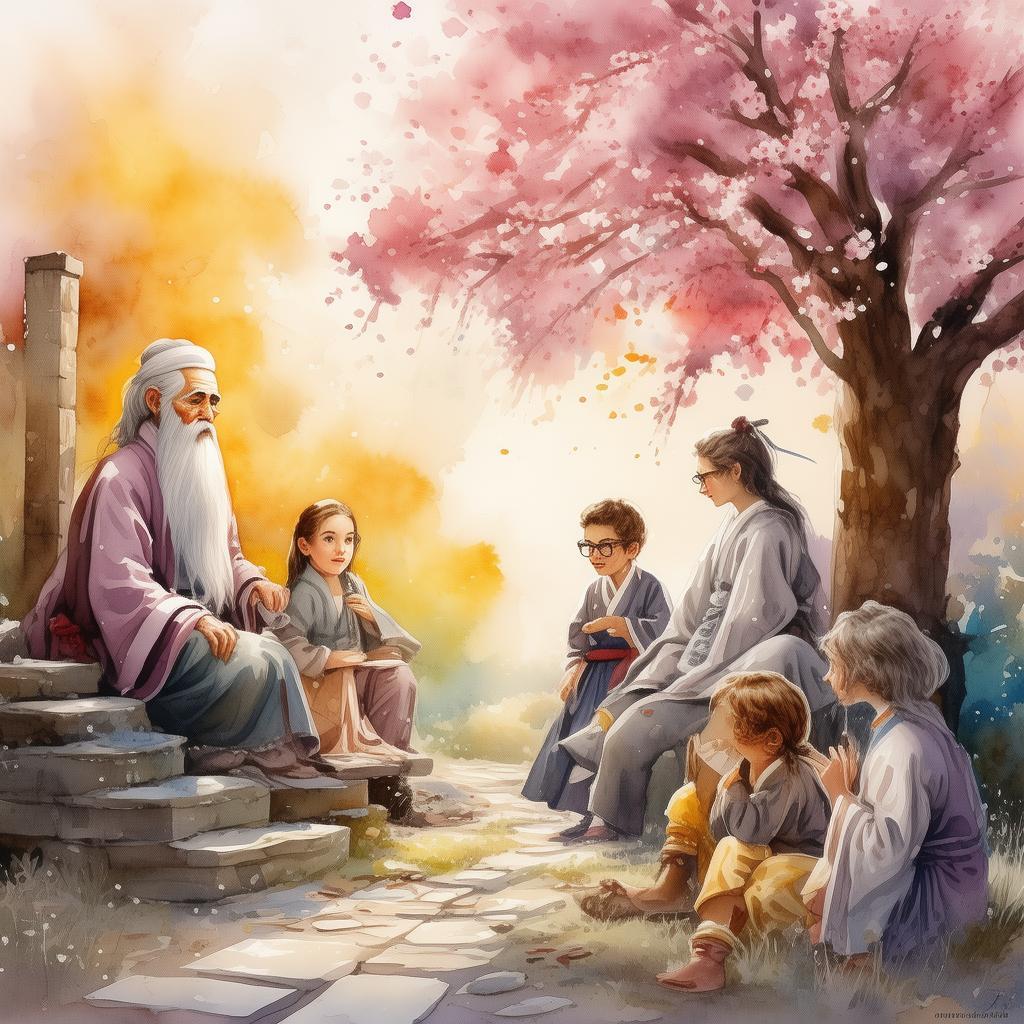
In the distance, they heard a voice, faint but distinct. It was his brother, calling out to them. Chen and the woman rushed to find him, and there, in a clearing, was his brother, alive and injured but unbroken.
The reunion was emotional, filled with tears and embraces. Chen's brother, looking at Chen, saw not just a soldier, but a brother, a man who had endured and survived. In that moment, Chen knew that the war had not only taken lives but had also forged a bond between them that could never be broken.
The three of them sat down, and Chen played the violin again. This time, the melody was one of joy, of unity, and of the healing that had come from their shared journey. The music echoed through the clearing, resonating with the spirits of those who had fallen in the war and those who had survived.
The violin, once a symbol of Chen's pain, had become a symbol of his healing and the healing of his family. It had become a part of the symphony of forgiveness, a melody that would be remembered for generations.
Chen's story spread throughout the village, and soon, others began to seek out the violinist, drawn by the power of his music and the hope it represented. The village, once a place of sorrow, began to transform, becoming a community of healing and unity.
The Echoes of the Violin: A Symphony of Forgiveness became a tale that resonated with many, a story of hope in the face of despair, of love that transcended loss, and of the power of music to heal the deepest wounds.
✨ Original Statement ✨
All articles published on this website (including but not limited to text, images, videos, and other content) are original or authorized for reposting and are protected by relevant laws. Without the explicit written permission of this website, no individual or organization may copy, modify, repost, or use the content for commercial purposes.
If you need to quote or cooperate, please contact this site for authorization. We reserve the right to pursue legal responsibility for any unauthorized use.
Hereby declared.
